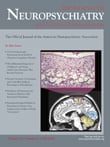M s. Z, a 23-year-old married woman from a rural background, presented with a 2-year history of undifferentiated schizophrenia (DSM-IV) with predominant symptoms of incongruent affect, bizarre delusions, and auditory hallucinations. Premorbidly, she was well-adjusted with family and friends. There was no history of substance abuse, and negative family history of psychiatric illness. Her symptoms were well controlled with risperidone, 3 mg/day. She had an unplanned pregnancy 6 months after beginning risperidone therapy. The pregnancy’s progression was normal, as were all the routine investigations including blood glucose level. Her prenatal ultrasound examination conducted at 18 weeks showed a normal pregnancy appropriate for gestational age, with no evidence of congenital malformations. Up until the end of the second trimester, she had been regular with her prenatal and psychiatric follow-up, but subsequently she refused to come in. Her father, however, remained in periodic contact with both specialists, reporting that she continued her risperidone therapy and did not show any signs of positive psychotic symptoms. She was reportedly maintaining good health, and the pregnancy was without adverse events. The patient had spontaneous labor at 39 weeks and delivered a healthy baby girl, weighing 3.2 kg. There were no postnatal complications. After the birth of the baby, Ms. Z’s dose of risperidone was reduced to 2 mg/day as she was psychiatrically stable. Nine months after the first baby, she became pregnant again while on risperidone, 2 mg/day. As before, she was regular in attending prenatal and psychiatric follow-up until the end of second trimester. However, her father was once again regular in briefing us about her condition, which did not reveal any physical or psychological complications. She was continued on the same dose of risperidone, 2 mg/day. At 39 weeks, she had an uneventful delivery of a healthy baby boy, weighing 3 kg. The babies were breastfed by their mother for 6 months. Both the children, now 36 and 18 months old, remained healthy, with no evidence of neurodevelopmental delays or any behavioral problem.
Until now we could find only one case report wherein atypical antipsychotic clozapine therapy was used successfully over two consecutive pregnancies without any postnatal complications.
1 Recent prospective studies also showed that the risk of risperidone causing poor pregnancy and fetal or natal outcome was not different from pregnancy risks for those in the general populations not exposed to this agent.
2,
3 By contrast, animal studies in rats have shown increased incidence of pup deaths and stillbirth with use of risperidone during pregnancy.
4 In humans, few cases reported that use of risperidone suggested agenesis of corpus callosum,
5 spontaneous abortions,
4 and oligohydramnios.
6 Nevertheless, our report probably suggests that risperidone may be used, though with caution, even in second a pregnancy, unless contraindicated.

